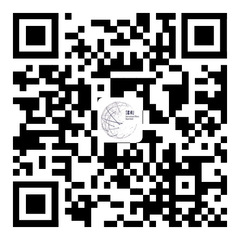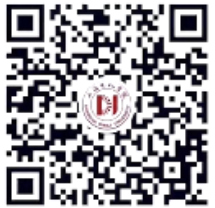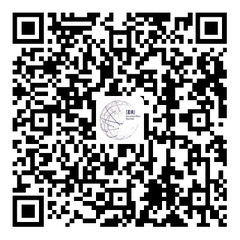To further global engagement, promote international education cooperation, and expand new areas of academic exchange and research collaboration, Vice President Wang Hongzhi recently led a delegation to visit Germany and Hungary. The delegation visited Hochschule Kaiserslautern university of Applied Sciences,Technical University of Applied Sciences Wildau (TH Wildau) in Germany, University of Debrecen (UD),and John von Neumann University (JvNU)in Hungary. This visit not only marked a significant action in our university’s active participation in international education cooperation but also a tangible step in responding to the Belt and Road Initiative by strengthening in-depth exchanges with universities in the relevant countries.
Deepening Cooperation with Germany and Seeking Joint Development
In Germany, the delegation visited the Hochschule Kaiserslautern Pirmasens and Kaiserslautern campuses, where they were warmly welcomed by President Hans-Joachim Schmidt, Vice President forInternationalisation Michael Magin, Chairholder Jörg Sebastian, and other relevant staff. During the meeting, Vice President Schmidt reviewed the history of cooperation and the educational achievements between the two universities, expressing great expectations for deeper future collaboration. Vice President Wang Hongzhi, reflecting on SDJU’s recent developments, emphasized the significance of the partnership with Hochschule Kaiserslautern and expressed hope for further strengthening their collaboration, aiming to set a model for domestic Sino-foreign cooperative education and industry-education integration.

During the visit, the delegation toured Hochschule Kaiserslautern’s logistics, electrical, and mechanical engineering laboratories, as well as the comprehensive training building. Both sides also discussed potential collaboration on joint training programs for logistics students, short-term faculty and student exchanges, and other cooperative initiatives. In addition, the delegation held a meeting with SDJU KKIP students studying at the university, gaining valuable insights into their academic and living experiences. Through direct communication with the students and in-depth discussions with German faculty, both sides reached further consensus on optimizing programs under the cooperative education model, with a focus on cultivating high-quality on-site engineers who possess an international perspective and are well-versed in global standards.

At TH Wildau, the delegation was warmly received by President Ulrike Tippe, former Vice President professor Jörg Reiff-Stephan, and program heads of Aviation Management, Automation, Logistics, and International Office. During the meeting, Vice President Wang provided a detailed introduction to the newly established SDJU Sino-German Center for Integration of Educationand Industry (CIEI)and emphasized the university’s development priorities in intelligent manufacturing and aerospace. President Ulrike Tippe highly praised SDJU’s achievements in Sino-German cooperation, recognizing the establishment of theCIEI as a strategically significant initiative. She expressed TH Wildau’s eagerness to deepen exchanges and actively participate inCIEI development activities.
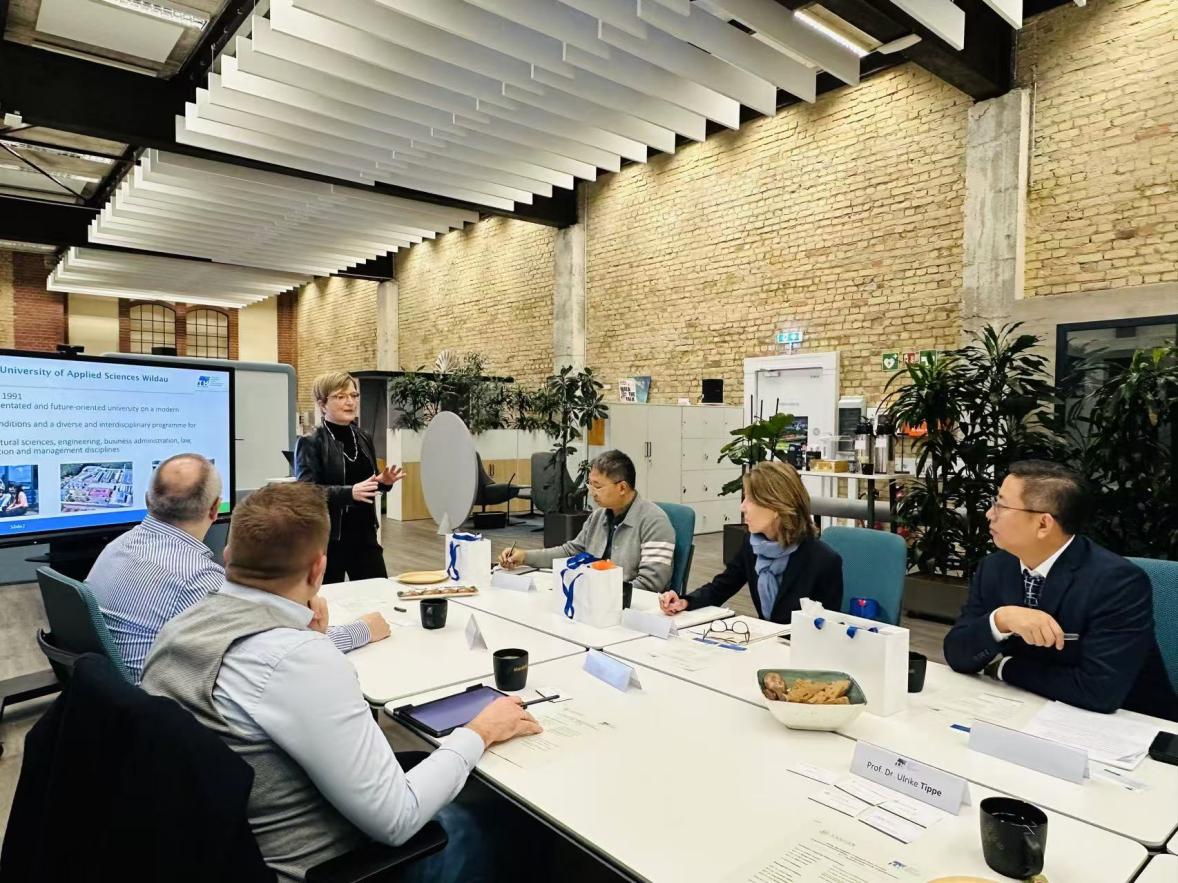
After discussions, both sides plan to jointly host a forum in 2025 at TH Wildau on the theme of Sino-German industry-education integration. The forum aims to explore innovative models of industry-education integration and promote deeper cooperation and exchange between China and Germany in key fields such as intelligent manufacturing and aerospace. Additionally, both parties have reached initial agreements on credit recognition for Mechanical and Electronic Engineering, Electrical Automation, and Logistics programs, a summer student exchange program, and related cooperation in Aviation Management.

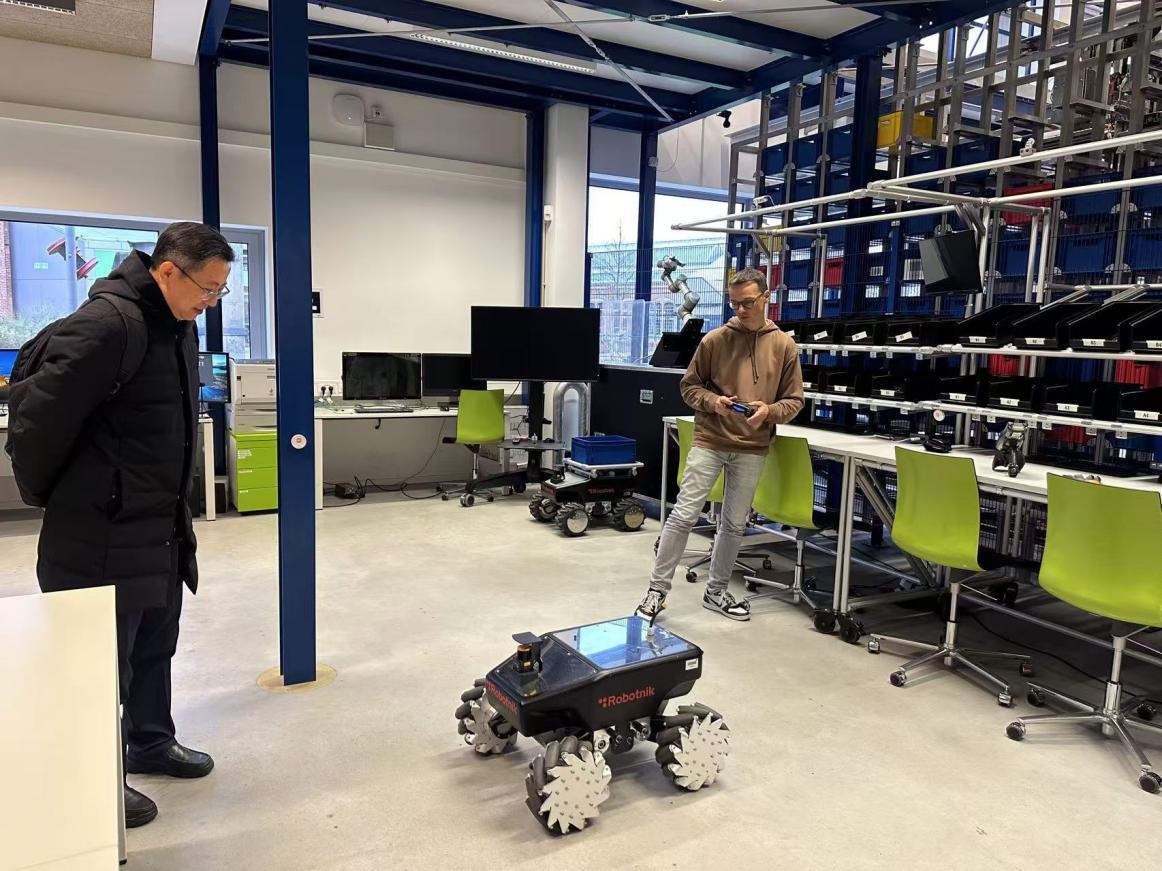
Expanding Sino-Hungarian Exchanges and Fostering Innovation Together
In Hungary, the delegation held a productive meeting with Professor Károly Pető, UD General Vice Rector,Professor Géza Husi,Dean of the Faculty of Engineering, and so on.Both parties agreed to jointly organize the “Digital Design and Manufacturing Innovation Forum” in 2025 and have started preparations for the forum. Vice President Wang congratulated the University of Debrecen on joining theUniversity Network for Research Collaboration: A Belt and Road Science and Technology Initiative (UNRC)and emphasized the close cooperation between China and Hungary in the field of education. He highly praised the teaching and research strength of UD, considering it a solid foundation for future cooperation between the two universities. Wang expressed SDJU’s intention to encourage faculty and students to actively apply for national scholarship projects and government international cooperation research fund, in order to promote scientific research cooperation and academic exchanges between the two institutions.

The two parties discussed the matter of inviting UD professors to SDJU, and teach in Shanghai in 2025. UD also expressed its willingness to join our Innovative Talent International Cooperation Training Program. During the visit, the delegation toured the engineering laboratories and held a meeting with SDJU students studying in Hungary. They encouraged them to study hard, share experiences, and inspire more students to apply for national scholarship programs.

AT JvNU, President CEO Zoltán Nagy (Professor), along with heads from the Faculty of Engineering and Computer Science,Hydrogen Technology Research Center, Department of Innovative Vehicles and Materials, and the International Office, met with the delegation. Both sides engaged in in-depth discussions and exchanges regarding the dual education system for talent cultivation and research cooperation in the field of new energy.

Both sides agreed that in terms of talent cultivation through industry-education integration, the two universities could learn from each other and jointly promote educational innovation. They agreed to enhance exchanges and interactions between faculty and students, including joint participation in international new energy vehicle racing events and engaging in research cooperation. The delegation also visited the Hydrogen Technology Research Center and the Innovative Vehicles and Materials Laboratory, gaining a deeper understanding ofJvNU’s research capabilities in the fields of new energy technology and materials science. This exchange not only deepened the friendship between the two universities but also laid a solid foundation for future in-depth cooperation in the fields of new energy and materials science.
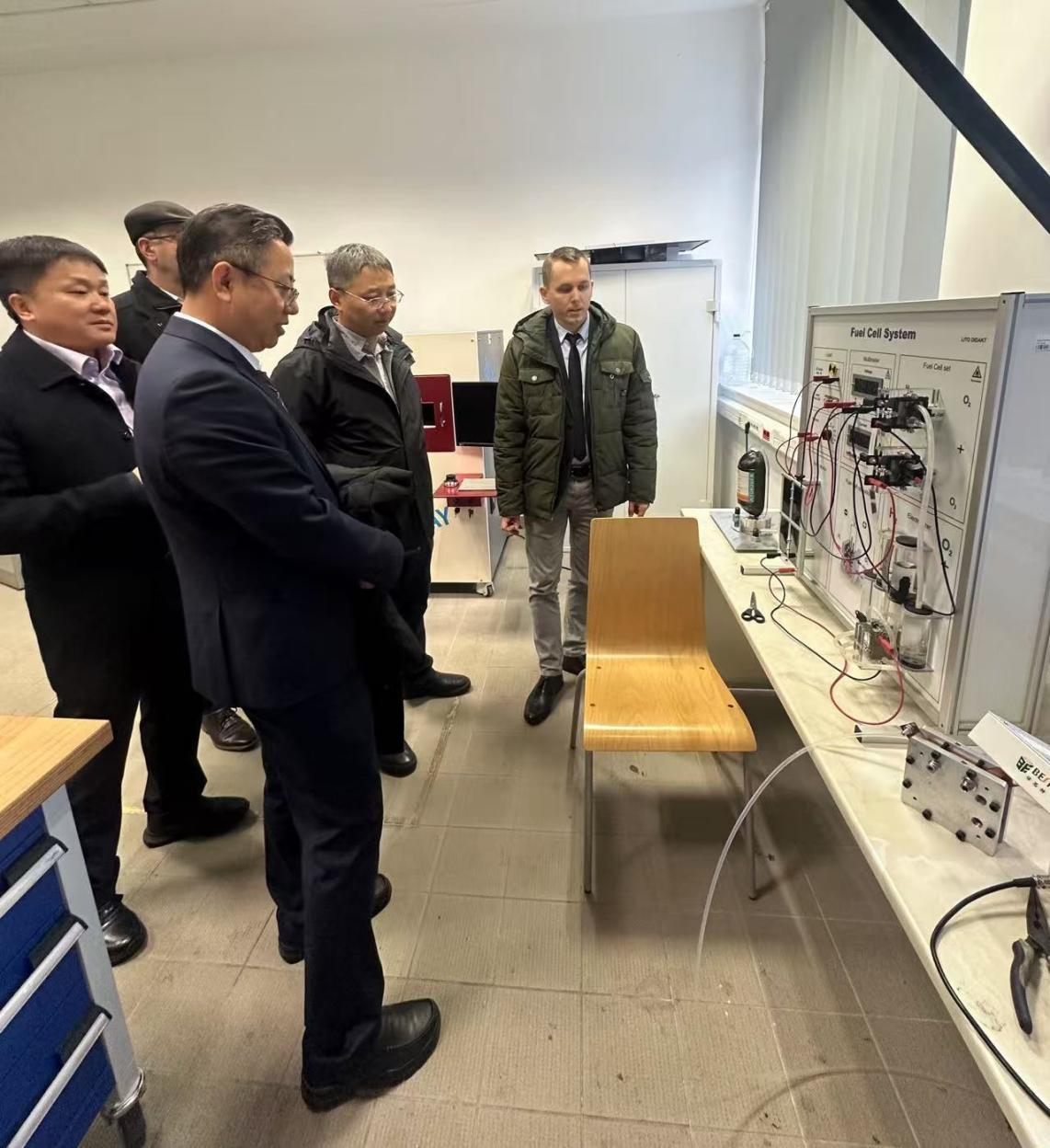
The success of this visit not only deepened the friendship and cooperation between our university and universities in countries of the Belt and Road Initiative, but also marked another substantial advancement and vivid demonstration of our university’s global engagement. Through this exchange, we have broadened our international cooperation horizons, laid a solid foundation for our integration into Belt and Road educational community, and created a wider platform for international collaboration in academic exchanges, talent cultivation, and scientific research. This visit has significantly enhanced the internationalization of our university.
To further global engagement, promote international education cooperation, and expand new areas of academic exchange and research collaboration, Vice President Wang Hongzhi recently led a delegation to visit Germany and Hungary. The delegation visited Hochschule Kaiserslauternuniversity of Applied Sciences, Technical University of Applied SciencesWildau (TH Wildau) in Germany, University of Debrecen(UD), and John von Neumann University (JvNU)in Hungary. This visit not only marked a significant action in our university’s active participation in international education cooperation but also a tangible step in responding to the Belt and RoadInitiative by strengthening in-depth exchanges with universities in the relevant countries.




